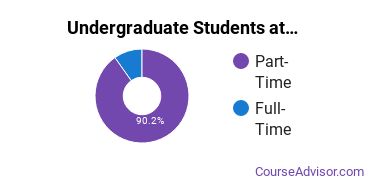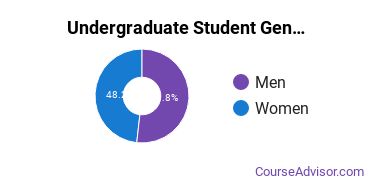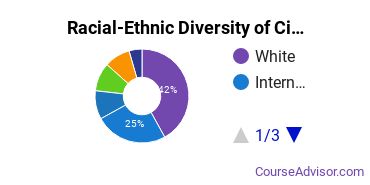City University of Seattle Overview
City University of Seattle is a private not-for-profit institution situated in Seattle, Washington. The city atmosphere of Seattle makes it a great place for students who enjoy having lots of educational and entertainment options.
What Is City University of Seattle Known For?
- Students who want to work more closely with their professors have an easier time at CityU since the student to facuty ratio is 6 to 1.
- Although it may not be available for every major, the doctor's degree is the highest award a student can attain at CityU.
- During a recent academic cycle, 8% of the faculty were full-time.
- After graduation, CityU bachelor's degree recipients go on to jobs where they make $69,460 a year. That's about 70% more than their peers at other schools.
- The average CityU student graduates in 4.0 years. That's better than the national average of 4.4 years.
Where Is City University of Seattle?

Contact details for CityU are given below.
| Contact Details | |
|---|---|
| Address: | 521 Wall Street, Suite 100, Seattle, WA 98121 |
| Phone: | 888-422-4898 |
| Website: | www.cityu.edu |
How Do I Get Into CityU?
You can apply to CityU online at: www.cityu.edu/applications-overview/undergraduate-application/
Can I Afford City University of Seattle?
Explore Best Ranked Schools for You
City University of Seattle Undergraduate Student Diversity

There are also 1,061 graduate students at the school.
Gender Diversity
Of the 117 full-time undergraduates at CityU, 60% are male and 40% are female.

Racial-Ethnic Diversity
The racial-ethnic breakdown of City University of Seattle students is as follows.

| Race/Ethnicity | Number of Grads |
|---|---|
| Asian | 10 |
| Black or African American | 16 |
| Hispanic or Latino | 16 |
| White | 38 |
| International Students | 19 |
| Other Races/Ethnicities | 18 |
Geographic Diversity
Washington students aren't the only ones who study at City University of Seattle. At this time, 4 states are represented by the student population at the school.
Over 51 countries are represented at CityU. The most popular countries sending students to the school are China, Vietnam, and Mexico.
City University of Seattle Undergraduate Concentrations
The table below shows the number of awards for each concentration.
References
*The racial-ethnic minorities count is calculated by taking the total number of students and subtracting white students, international students, and students whose race/ethnicity was unknown. This number is then divided by the total number of students at the school to obtain the racial-ethnic minorities percentage.
More about our data sources and methodologies.
